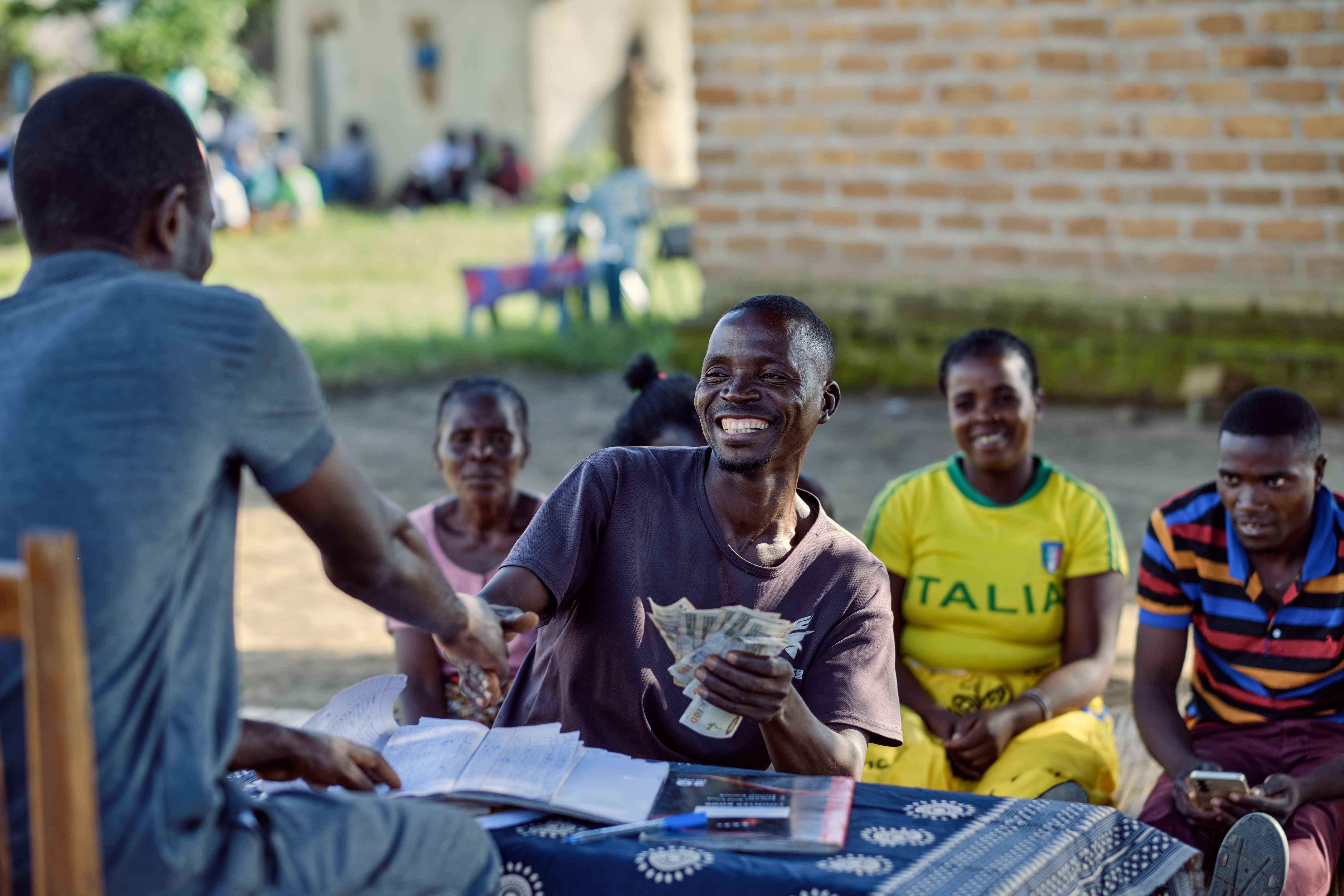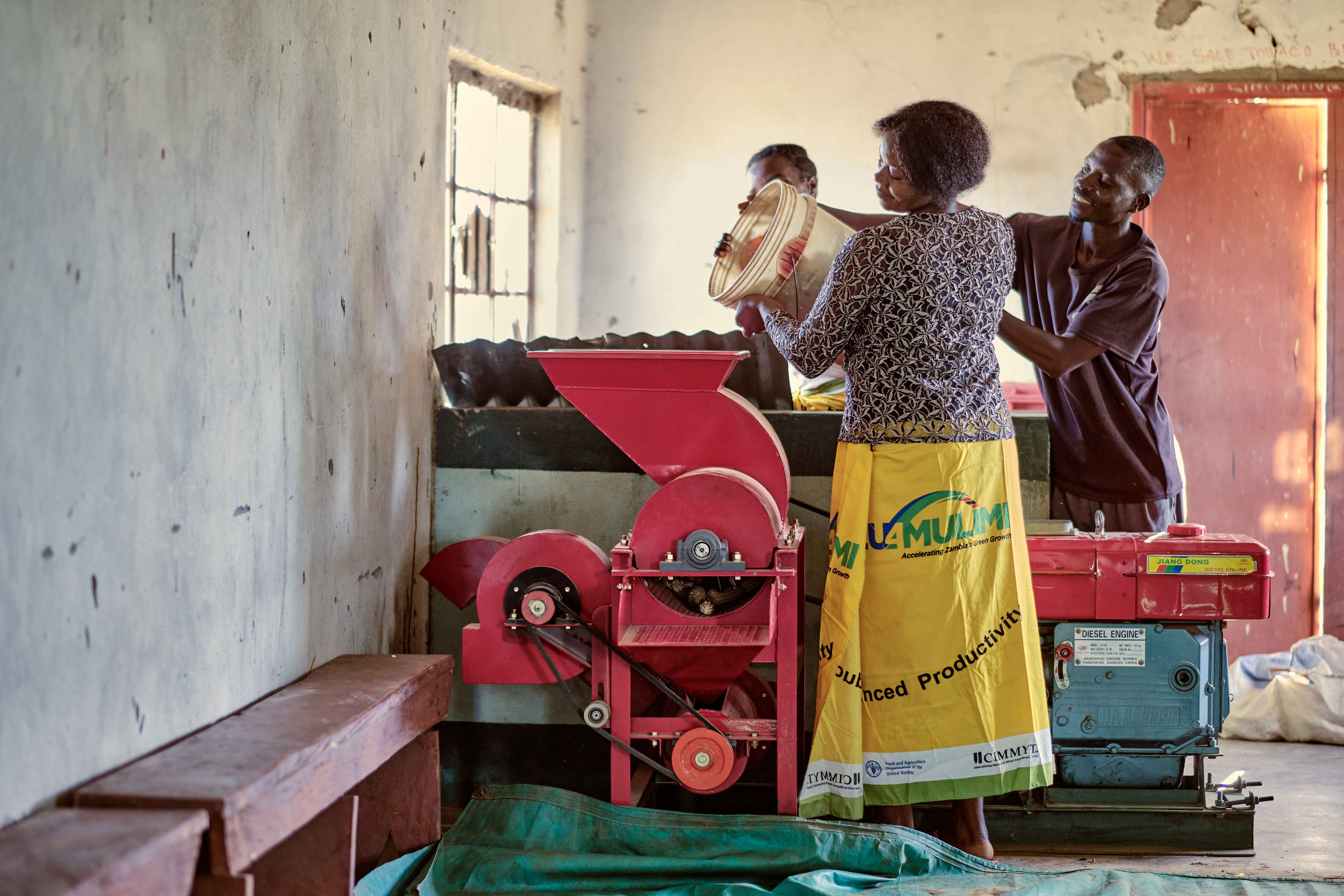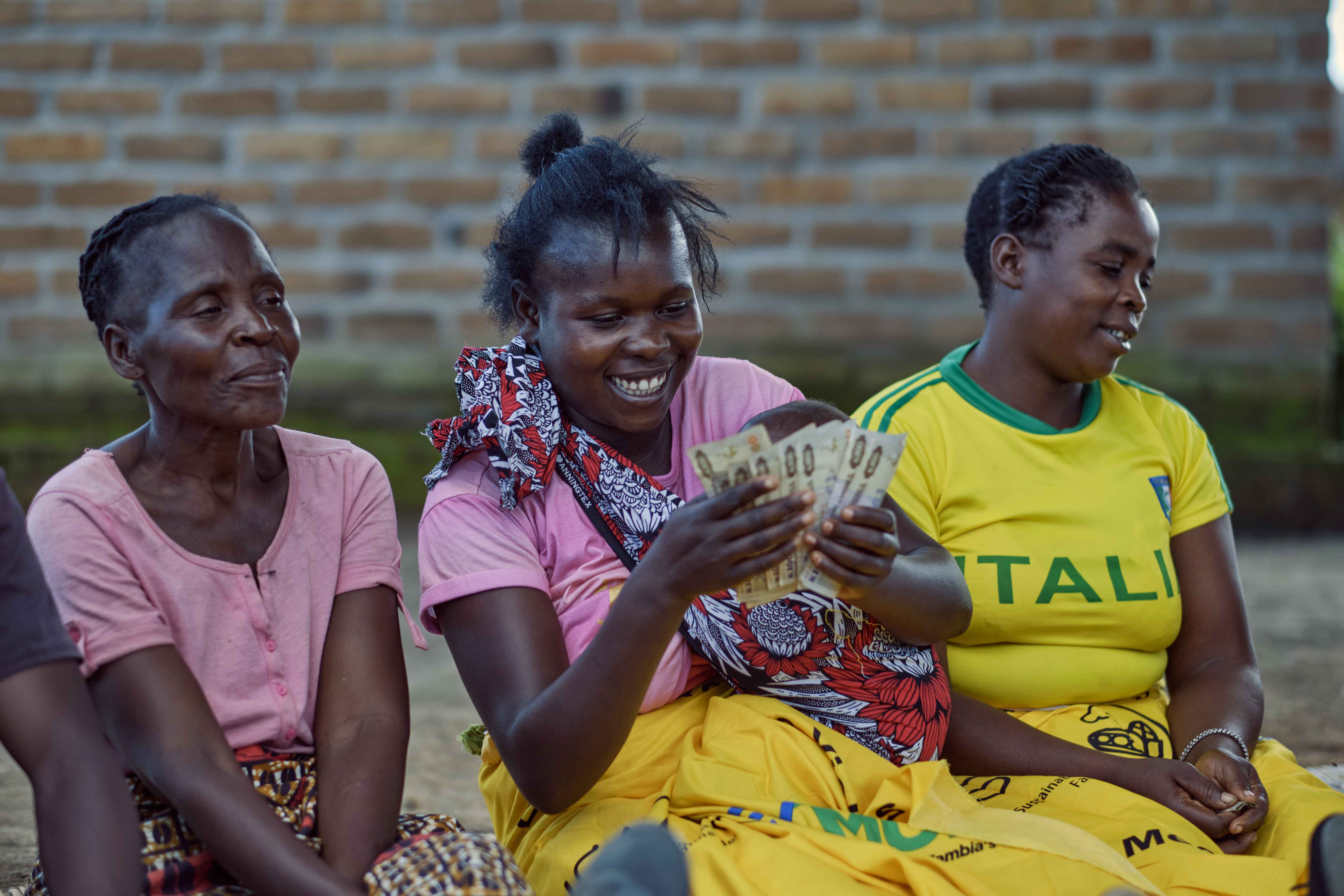
Promoting Smallholder Farmer Competitiveness through Financial Literacy
Farmer receives money due to him during the share-out session for the village bank under Dondo Multi-Purpose Cooperative
FAO 2025
19/03/2025
In 2014, driven by the desire to generate income to support their families, a group of smallholder farmers, formed Dondo Multi-Purpose Cooperative. The cooperative is in Manjakazi Agricultural Camp, in Chipata district of Eastern Province, and has a membership totalling 141 people, with majority being women and youths. However, like many farmer cooperatives in Zambia, Dondo Cooperative struggled for years to make an impact or profit, due to the numerous challenges it was facing, including the inadequate legal frameworks, ineffective marketing systems, poor governance structures, limited capital and a lack of cooperative development skills.
“Initially, the cooperative was formed to ensure easy access to inputs under the Government’s Farmer Input Support Programme (FISP), and once the input window closed, members would retire to their usual day-to-day activities until the next input cycle. We realised, therefore, that we were not running the cooperative as a business capable of earning us significant returns,” said Trivellio Mwale, the Chairperson of Dondo Cooperative.
As a response to these challenges, Dondo Cooperative executive allowed its members, in 2019, to receive governance and financial literacy trainings, which were facilitated by the Ministry of Agriculture, with support from the European Union-funded Sustainable Intensification of Smallholder Farming Systems (SIFAZ) project in Zambia. The trainings also explored ways in which the cooperative could increase productivity, and promote agribusiness, the latter which focused on promoting smallholder enterprise development, to ensure establishment of mechanization-based enterprises, promote agro-dealership and produce, and commodity off-taking, as well as green jobs.
“The trainings, especially those focused on governance and financial literacy, were necessary for members to understand the basic economic concepts needed to make savings and investment decisions. We also needed to understand the importance of a well-defined cooperative structure, a constitution, as well as ensure effective record keeping, to keep track of our progress as a cooperative,” Trivellio said. Furnished with this rich knowledge, Dondo Cooperative set out on a path to rebuild a viable business, including setting clear financial goals and management plans. “The first thing we did was to amend our by-laws to allow for the upward adjustment of the share capital from K50 to K500 per member. We also initiated a six (6) months Village Bank savings cycle with the first saving of K10,000, recorded in February 2024,” Trivellio recalled.
The results of these bold decisions have been rewarding for cooperative members. For example, as at the close of the first saving cycle in August 2024, Dondo Cooperative had raised nearly K130,000 in savings, which was shared out successfully amongst members. “The revision of our share capital also increased our revenue and we decided to pool resources together and collaborated with equipment suppliers such as CAMCO to purchase a maize sheller worth K45,000, so we could offer a service to community members at a fee. We have also developed a business plan to compete for a matching grant, to acquire a four-wheel tractor so that we engage in mechanisation service provision,” Trivellio said.
Additionally, the cooperative engages in seed multiplication ventures, working collaboratively with companies like Share Africa Zambia and Kanano. “Our vision is to strengthen the seed multiplication business to the extent that we register ourselves as legume seed suppliers of choice, thereby reducing the challenges of access to legume seed among locals, and the region at large,” Trivellio said.
Godfrey Ngoma is a 29-year-old member of Dondo Cooperative, and he attests to the great impact that the savings initiative has had on farmers’ livelihoods. “In the first cycle, I saved a total of K10,000 that I invested in the business of buying and re-selling cattle. I started off by buying two (2) female animals valued at K3,500 and K3,000 respectively, which I later sold to a butchery. The profit I realized from this transaction was channelled towards improving the welfare of my household,” he said.
Godfrey now has eight (8) cattle and can afford to procure farming inputs so he can implement sustainable intensification practices, promoted by the SIFAZ project. With these great achievements, Dondo Multi-Purpose Cooperative is surely an example of how agriculture can be a profitable business if pursued with vision, hard work, and openness to innovation and training. Dondo Multi-purpose Cooperative appreciates the European Union-funded SIFAZ Project, implemented by FAO in close collaboration with CIMMYT and the Ministry of Agriculture, for the financial literacy education that has made them more competitive in the Market.


